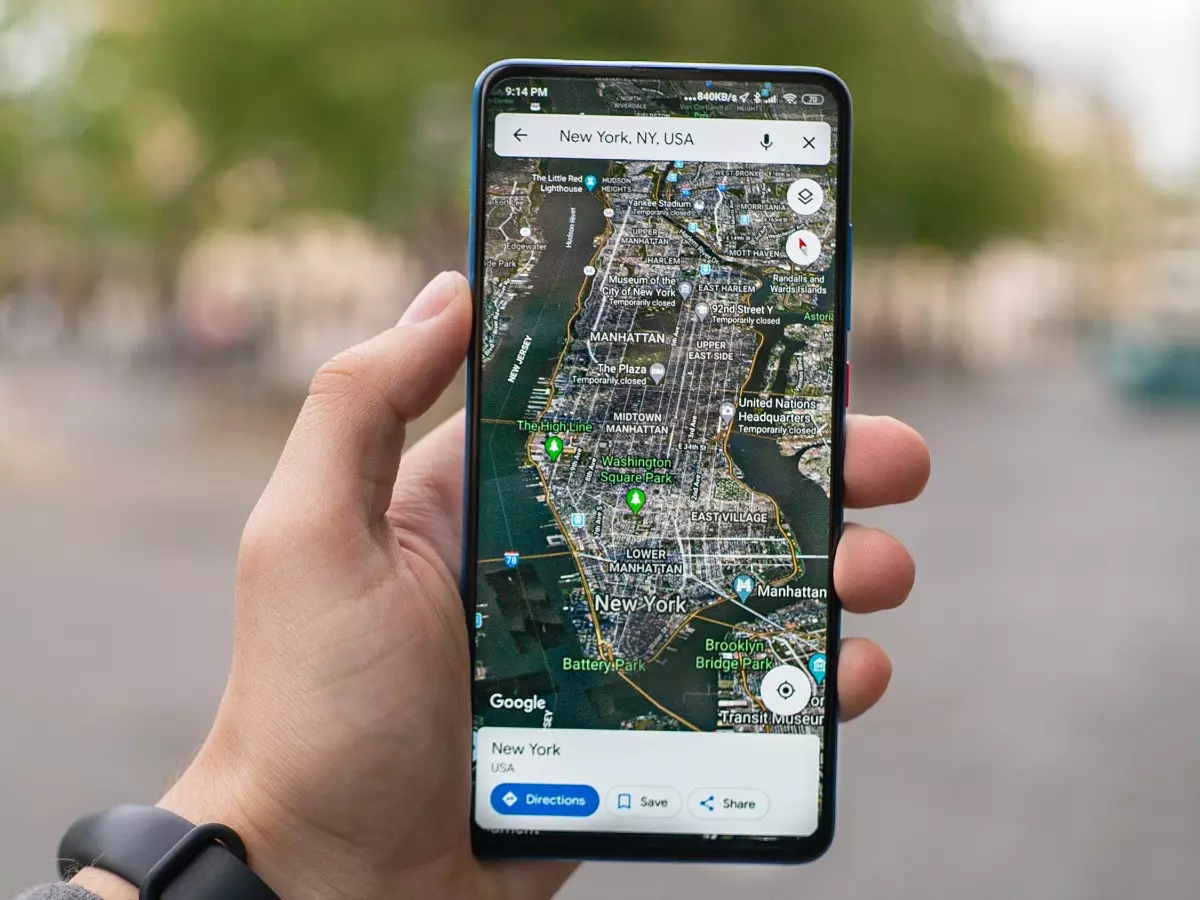Ex-Google Designer Explains Why Google Maps' New Colour Scheme Feels 'Less Human'
Google Maps navigation now has a new colour scheme. Roads are now grey, water appears a lighter shade of blue, and parks and public spaces also have a lighter green shade.

Google Maps recently changed its look. Last week, Google announced updates to Google Maps, claiming that it will begin rolling out to iOS and Android users in the coming weeks. The update includes improved public transit directions, locations for electric vehicle charging stations, and a feature that lets friends share their favourite places, among many features.
 Unsplash
Unsplash
What is Google Maps' new colour-scheme?
However, one Maps upgrade is getting a lot of reactions on social media. Google Maps navigation now has a new colour scheme. Roads are now grey, water appears a lighter shade of blue, and parks and public spaces also have a lighter green shade.
15 years ago, I helped design Google Maps.
í¬ Elizabeth Laraki (@elizlaraki) November 22, 2023
I still use it everyday.
Last week, the team dramatically changed the mapí»s visual design.
I doní»t love it.
It feels colder, less accurate and less human.
But more importantly, they missed a key opportunity toíş pic.twitter.com/HMcpKiOEdr
Elizabeth Laraki, who was one of the two designers behind Google Maps in 2007 recently shared her disappointment over the new colour scheme on X, formerly Twitter. Laraki said that the colours of water and parks "blend together" and that the app's colour palette looks more "computer generated."
Also read: How Did Google Maps Overcome India's Street Name Challenge? Former Employee Explains
"I don't love it... It feels colder, less accurate and less human," Laraki wrote on X.
Even though Laraki isn't fond of the new colour scheme, she highlighted how some features are easier to easier. Major roads, traffic, and trails now stand out more, and Laraki also believes Google wants to make Maps easier to use.
What could have Google done instead?
Laraki believes Google "missed a big opportunity" in terms of simplying the Google Maps design. "Google Maps should have cleaned up the crud overlaying the map," she wrote while referring to the placement of the search box and satellite and traffic overlays.
 Unsplash
Unsplash
"The map should be sacred real estate. Only things that are highly useful to many people should obscure it. There should be a very limited number of features that can cover the map view. And there are multiple ways to add new features without overlaying them directly on the map," Laraki wrote.
In addition, she highlighted how Google Maps could look, urging Google to keep the search bar and the bottom bar while removing everything else from the map. Laraki says Google should put the most used features in the bottom bar and bury other features elsewhere in the app.
Also read: Avoid Speeding Tickets By Using Google Maps' Speedometer: Here's How
 Unsplash
Unsplash
"Ití»s normal for products to accumulate features over time. But ití»s also super important to stay vigilant and continually clean them up," she wrote, while explaining how in 2007 when she was one of the two designers working on Google Maps, they faced a similar issue.
"At that time, Maps had already become a cluttered mess. We were wedging new features into any space we could find in the UI. The user experience was suffering and the product was growing increasingly complicated. We had to rethink the app to be simple and scale for the future."
What do you think about Google Maps' new look? Let us know in the comments below. For more in the world of technology and science, keep reading Indiatimes.com and click here for our how-to guides.
